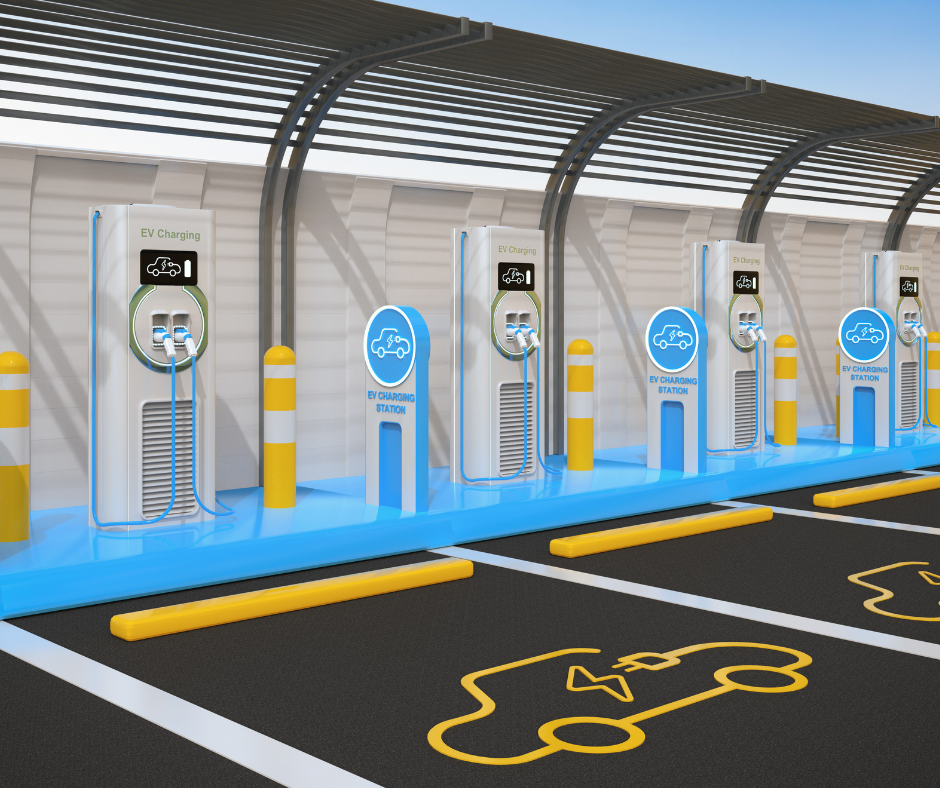
How EV Charging Stations Work
Electric vehicles (EVs) are becoming increasingly popular in Missouri and Arkansas as both states build infrastructure to support them. In fact, the Arkansas Department of Transportation recently awarded $14.91 million to build 19 electric vehicle charging stations along Arkansas highways and interstates. If you’re considering making the switch to electric for your next vehicle, understanding how EV charging stations work is a crucial step in the process.
Understanding EV Charging Stations
EV charging stations come in different types, each designed to meet various charging needs. They provide the same function as a gas station does for a gas-powered car. An EV charging station connects the electric car to a power source, which then transfers electricity to the car’s battery, essentially refueling it. The main types of charging stations include Level 1, Level 2, and DC Fast Charging, each offering different charging speeds and use cases.
Charging Levels Explained
EV charging stations offer three different levels of charging, each with distinct characteristics suited to different situations and needs:
Level 1 (Slow Charging)
- Power source: Standard 120-volt household outlet.
- Typical charging time: Eight to 12 hours for a full charge.
- Use cases: Best for overnight home charging or when long charging times are acceptable.
Level 2 (Standard Charging)
- Power source: 240-volt outlets, similar to those used for larger home appliances like dryers.
- Typical charging time: Four to six hours for a full charge.
- Use cases: Homes, workplaces, and public charging stations.
DC Fast Charging (Fastest Charging Option)
- Power source: Direct current (DC) electricity, typically 480 volts.
- Typical charging time: Can charge a vehicle to 80% in about 30 minutes.
- Use cases: Long-distance travel and quick top-ups.
- Potential Limitations: Can cause battery heat, which may impact battery life if used frequently.
Environmental Benefits of EVs
Electric vehicles offer significant environmental benefits compared to traditional gasoline-powered vehicles. EVs produce zero tailpipe emissions, which helps reduce greenhouse gas emissions and air pollutants. This shift toward cleaner transportation aligns with the growing focus on sustainability and cleaner air, contributing to a healthier environment for everyone.
Solar Power and Charging Stations
Electric vehicles are a strong start toward reducing the use of fossil fuels, but they are often charged using non-renewable energy sources. Solar-powered charging stations represent a significant step toward sustainable energy solutions. By utilizing solar energy to power electric vehicles, these stations reduce reliance on non-renewable energy sources and lower overall emissions. Solera Energy is at the forefront of this innovation, providing residential and commercial solar-powered EV charging solutions that combine the benefits of renewable energy with the convenience of electric vehicle charging.
Partner With Solera for Sustainable EV Solutions
Electric Vehicles offer significant environmental benefits, and solar-powered EV charging stations further enhance their sustainability. As the adoption of electric vehicles continues to rise across Missouri and Arizona, understanding how EV charging stations work and the different levels of charging available is crucial. To learn more about how solar energy can power your EV charging needs, explore Solera Energy’s solutions for residential, commercial, industrial, and utility-scale applications.
Contact Solera for your solar energy needs in Missouri and Northwest Arkansas.
Here’s Why Our Customers Love Us



